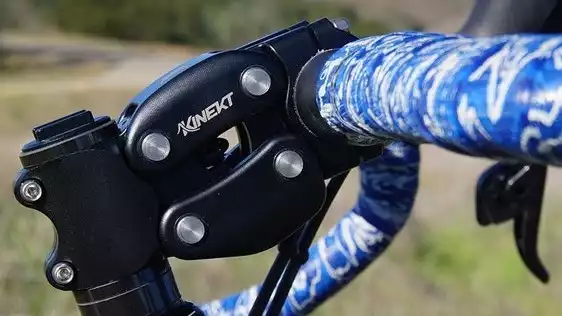Cirrus Cycles appears to have perfected the suspension stem.
As gravel bikers venture further off-road, terrain-induced fatigue is becoming an issue. While most gravel bikers reject even simple front fork suspension solutions (such as those available from Icelandic company Lauf), the results of trail and gravel road buzz are literally numbing.
Paul Barclay, founder of Cirrus Cycles, has test-ridden gravel roads on rigid bikes. He learned how tough unmaintained gravel roads can be during his volunteer work in Uganda.
Berkeley's company specializes in making mechanically durable suspension seatposts that do not use air, oil, or complex sealing systems; Cirrus Cycles prefers to use springs and mechanical linkages, and its latest product development is the Kinekt suspension stem.
Aimed at gravel bikers who ride a lot of rough terrain with heavy corrugated surfaces, the Kinekt stem offers the equivalent of 20 mm of suspension travel.
Cirrus promises that its new suspension stem will provide excellent fatigue reduction for avid gravel bikers without compromising the bike's steering characteristics. Previous suspension stems, while providing vibration-absorbing comfort, were terribly erratic in their steering response.
Kinetic's stem uses steel springs housed in a parallelogram-shaped dual-link design that helps separate vertical suspension forces from lateral steering loads.
Cirrus recognizes that lighter and larger riders do not demand the same damping, so customers can choose from three springs (soft, medium, and firm), which are easily interchangeable.
Four sizes are available, from 90mm to 120mm, with corresponding weights from 465g to 535g. While the idea of a mechanically active stem may cause some to warn against maintenance, Cirrus says that the Kinekt suspension stem uses IGUS bushings and is virtually maintenance-free.
Cirrus developed the Kinekt stem with funds from a Kickstarter campaign and plans to release it by spring, at a price of $180.


Comments